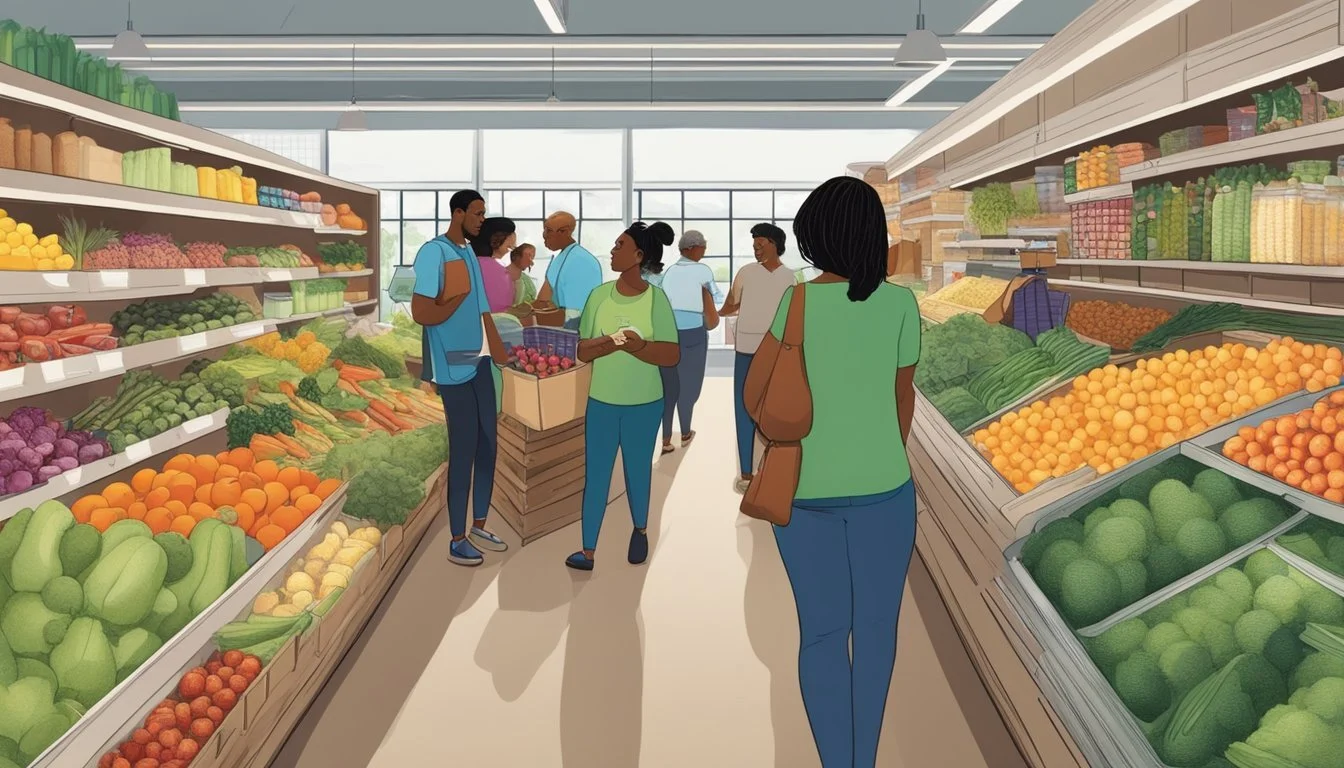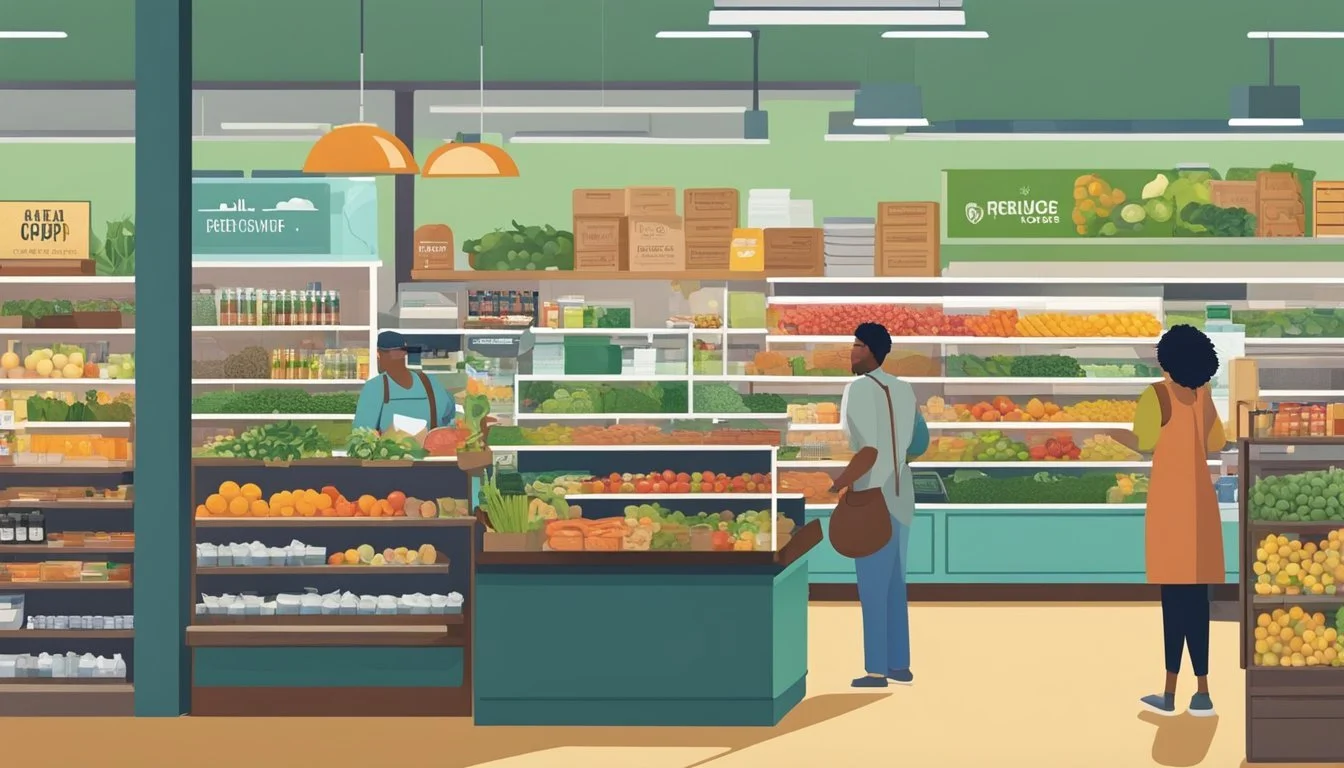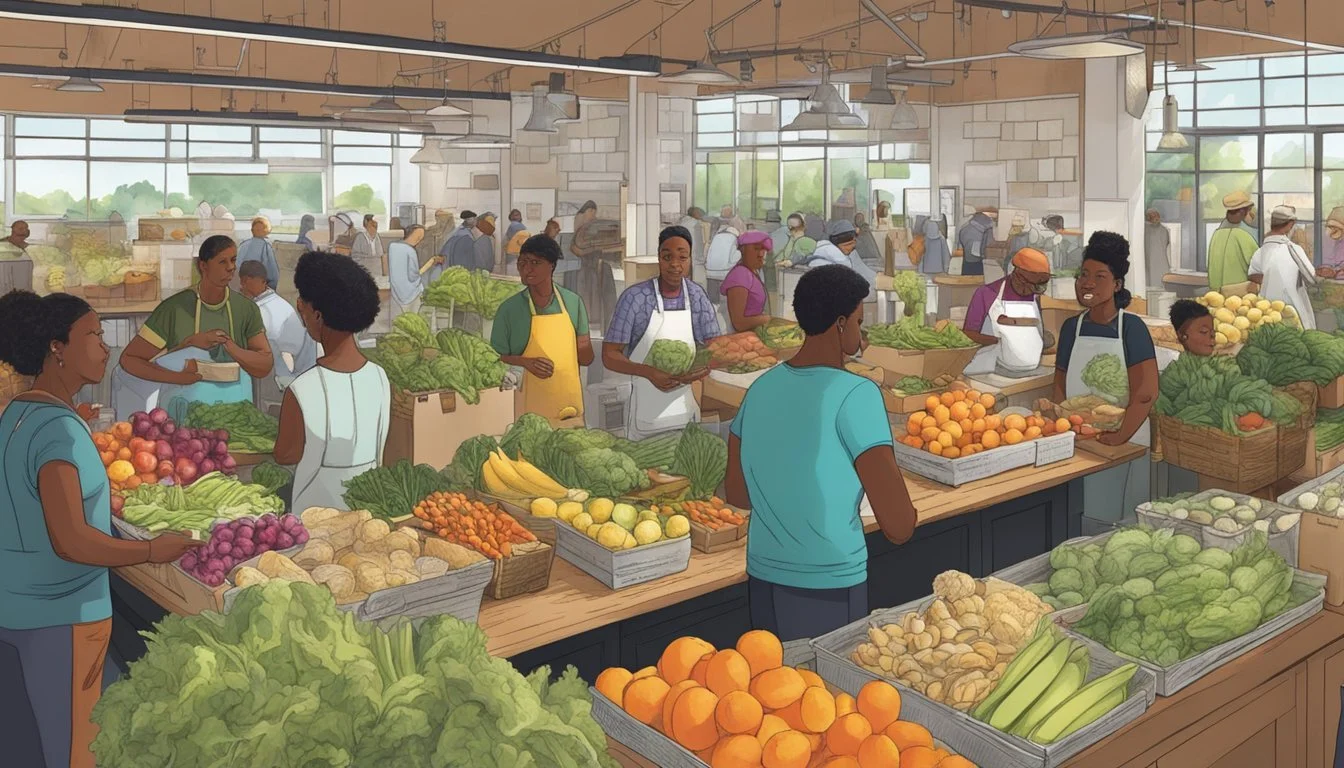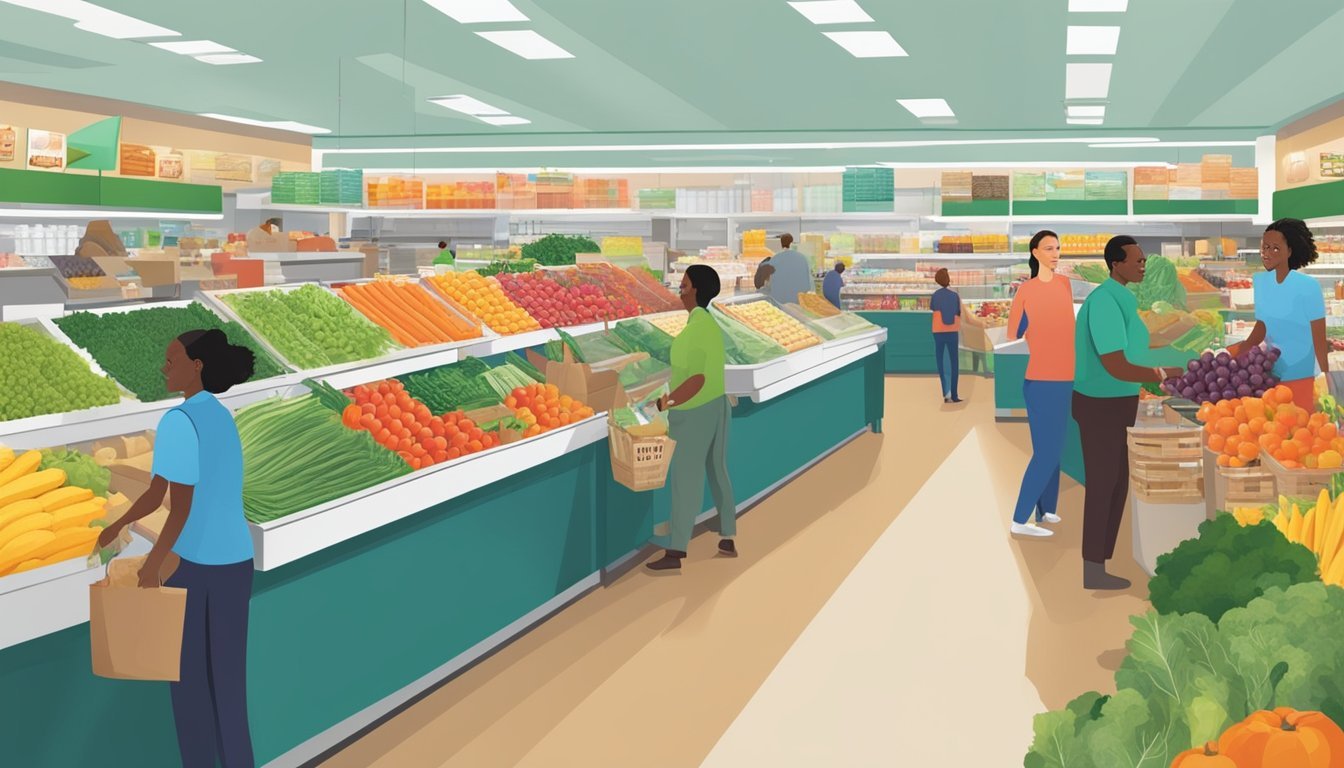Guide to Food Co-Ops in Birmingham, AL
Your Essential Source for Local, Community-Owned Groceries
Food cooperatives offer a unique alternative to traditional grocery stores by providing locally sourced, often organic, produce and products to their members and the community. In Birmingham, Alabama, food co-ops are a growing trend for those looking to connect with local farmers and artisans. These cooperatives operate on a membership basis, but they often welcome non-members to shop and participate in community events.
The city hosts several food co-ops, each with its own set of services and products. MannaMarket Organic CO-OP, for instance, is not just a purveyor of natural foods but is also a certified organic grower recognized by the USDA. It typifies the cooperative's mission of sustaining a healthy connection between the consumer and their food source. Such cooperatives in Birmingham underline the importance of knowing not just what one is eating but also what one is not, promoting transparency in their food sourcing.
These cooperatives are more than just food suppliers; they act as hubs for community growth and support. Through their services, they aid in the creation of a more health-conscious and environmentally friendly food culture. Birmingham's food co-ops offer diverse selections ranging from organic produce boxes to essential oils, catering to the various needs of the community while fostering a spirit of togetherness through food.
The Basics of Food Co-Ops
A food co-op, or cooperative, operates on a business model where both ownership and decision-making are shared among member-owners. Unlike conventional grocery stores, co-ops are driven by the values and needs of their members, rather than solely profits.
Membership is voluntary and open to all, with member-owners having a say in the governance of the cooperative, often through a democratic voting system. This involvement fosters a sense of community and aligns the co-op’s offerings with member needs.
The typical merchandise found in a co-op includes a variety of produce and products with an emphasis on organic, locally sourced goods. By supporting local communities and farmers, co-ops aid in sustaining local economies and reducing the carbon footprint associated with long-distance transportation of goods.
Food co-ops often focus on providing high-quality, sustainably sourced food options. Here's a breakdown of their key characteristics:
Ownership: Owned and controlled by member-owners.
Products: A focus on organic and locally sourced produce and goods.
Benefits: Economic benefits are returned to member-owners, and there's an emphasis on community well-being.
Values: Operate on principles such as democratic member control and concern for the community.
The benefits of a co-op extend beyond the economic to social and environmental. They create a direct link between consumers and producers, and the profits generated are typically reinvested back into the cooperative or the local community. This cycle of investment helps to ensure the co-op’s sustainability and relevance to the needs of its members.
Benefits of Joining a Food Co-Op
Joining a food co-op in Birmingham, AL, offers a range of advantages, from bolstering the local economy to enhancing personal health and contributing to community vitality. Members often experience a sense of ownership and involvement in local food initiatives.
Economic Impact
By participating in a food co-op, members directly support the local economy. Money spent in a co-op tends to stay in the community, benefiting local farms and businesses. This model ensures that local farmers receive a fair price for their produce, promoting equity and sustainability within the agricultural sector.
A food co-op can increase market access for local farms.
Co-ops provide farmers with a reliable point of sale for their local produce.
Health and Nutrition
Food co-ops prioritize offering healthy food options. Members have access to a variety of organic and locally sourced foods, which can contribute to better nutrition and overall health.
Organic produce often features prominently in co-ops, catering to members' demand for natural food choices.
By organizing the selection, co-ops maintain high quality standards, often surpassing those of regular grocery stores.
Community Engagement
Food co-ops serve not just as marketplaces but also as hubs for community engagement. Through an inclusive approach to ownership and decision-making, co-ops reinforce community bonds.
Owning a share imparts a sense of belonging and investment in the community's success and food sovereignty.
Events and programs hosted by co-ops often focus on education and connecting consumers with their food sources, encouraging a more engaged and informed public.
How Food Co-Ops Work
Food co-ops in Birmingham, AL, function on a basis of shared membership and ownership, with an emphasis on democratic governance and collective funding. Here, the members are the heartbeat, guiding the operations and reaping the unique benefits of a co-operative model.
Membership and Ownership
Members, also known as member-owners, are the foundation of food co-ops. They buy shares, which conveys a sense of ownership and investment in the co-op. Membership is typically open to anyone who agrees to the co-op's terms and purchases a membership share. This equity payment is a demonstration of commitment and grants members the right to participate in key decisions.
Equity: A one-time fee for a share of the co-op.
Benefits: Access to special discounts, products, and participation in the governance process.
Democratic Governance
Food co-ops operate on a democratic model, meaning each member-owner has a vote in important decisions, including board elections and policy changes. This ensures that the co-op aligns with the interests and values of its members, rather than external stakeholders.
Board of Directors: Elected from the membership to oversee major decisions.
Annual Meeting: A gathering where members vote on strategic directions and review annual sales and revenue.
Funding and Revenue
The funding for a food co-op comes primarily from its members through their purchase of equity and from the revenue generated by annual sales. This model emphasizes the importance of financial participation by members to maintain the co-op's operations and growth. Revenue is reinvested into the co-op to improve services, offer competitive prices, and occasionally distributed as dividends to the members.
Annual Sales: The key driver of operational funding.
Revenue: Used to sustain and grow the co-op's offerings.
Finding a Food Co-Op in Birmingham
In Birmingham, AL, individuals seeking high-quality, local produce have several options for finding a food co-op. These community-focused shopping alternatives provide access to fresh, organic, and locally-sourced goods, often operating on a membership-based model.
To locate a food co-op nearby, one effective resource is the Coop Directory Service, which maintains a comprehensive database of co-ops across the United States, including those in Birmingham. Additionally, LocalHarvest is a valuable tool for identifying local food co-ops; it allows users to search by location to find nearby markets and farms.
One notable option in the Birmingham area is Valleydale Farmers Market, recognized for offering a selection of goods from local farmers and artisans. Furthermore, Manna Market Organic Food CO-OP is another establishment providing organic produce and speciality foods, with a focus on pesticide-free goods.
Residents are encouraged to participate and register with these co-ops to enjoy their benefits. It’s also beneficial for locals to reach out to farmers or market managers in their community to ensure the co-ops’ information is up-to-date.
Contact information for specific co-ops, such as Manna Market, can often be found directly on their websites or through local listings, which provide a point of contact:
Manna Market Organic Food CO-OP: Call Robyn Jones Mitchell at (205) 566-2533
For those unable to access these markets directly, food pantries in Birmingham, like the Mobile Pantry, serve different locations monthly, offering a variety of foods to the community.
Local Food Co-Ops Profiled
In Birmingham, Alabama, residents have access to unique food co-ops that foster a connection with local farms and offer organic food options. These community-centric initiatives provide a sustainable approach to grocery shopping.
MannaMarket Organic Co-Op
MannaMarket Organic Co-Op is a USDA-listed food hub situated in Mountain Brook, which specializes in organic produce. With a certification from the USDA as an Organic Certified Grower, it plays a pivotal role in the local community by ensuring access to natural and organic foods sourced directly from local farms. Patrons appreciate the dual benefits of supporting local agriculture and enjoying the nutritional advantages of organic products.
Community Grocery Initiatives
Community Grocery Initiatives in Birmingham are designed to bridge the gap between local farmers and urban residents. These co-op programs often emphasize:
Direct Relationships: Facilitating direct commerce between consumers and local farms.
Organic Options: Offering a variety of organic goods, promoting healthier lifestyle choices.
Community Support: Encouraging community members to shop locally, supporting the local economy and reducing carbon footprint.
These initiatives provide a regular grocery store experience with the added benefits of fresh, locally-grown produce. They aim to fortify community ties by drawing Birmingham residents closer to their food sources.
Membership Benefits and Responsibilities
Food Co-ops offer a distinctive model of grocery shopping where members enjoy both benefits and responsibilities tied to the cooperative’s success. Members are partial owners, providing them with a say in the Co-op's operations and decisions.
Benefits for Members:
Discounts: Members often receive a 15 to 20 percent discount on purchases, rewarding their commitment to the Co-op.
Special Deals: Access to member-only deals enhances savings.
Member Dividends: Depending on the Co-op’s profitability, members may receive a share of the profits.
Supporting Local Agriculture: Purchasing from a Co-op means contributing to the local economy and supporting local farmers, bolstering sustainability.
Special Ordering: Members can place special orders for bulk items or products not typically stocked.
Responsibilities of Members:
Capital Investment: A one-time refundable capital investment fee, typically around $100, plus a nominal join fee.
Annual Dues: A yearly fee, which can range from $24 to $48, maintaining membership status.
Volunteer Work: Some Co-ops require volunteer hours, averaging 2.25 hours per week, strengthening the community bond.
Staff Interaction: Staff at Co-ops usually comprises fellow members who understand the intricacies of the cooperative model. They facilitate a seamless shopping experience and are a resource for information regarding the Co-op’s products and policies.
In summary, membership in a Food Co-op is an investment in both the individual’s and the community's well-being, requiring participation, financial commitment, and a shared objective of sustaining a thriving, local-centric grocery alternative.
Challenges and Considerations
Food co-ops in Birmingham, AL, face distinct challenges that affect their operation and sustainability. Considerations regarding the economic environment and adaptations during the pandemic are crucial for their continued service to the community.
Economic Challenges
The economic landscape poses several challenges for food co-ops in Birmingham. These member-owned entities often struggle with securing capital for startup and growth compared to traditional businesses. Their focus on providing affordable, healthy food often leads to narrower profit margins. Additionally, small businesses, such as food co-ops, are vital to the local economy and are significant sources of jobs. However, they face fierce competition from larger retailers, which can undermine their market share and financial viability.
Key factors impacting economic challenges include:
Capital Acquisition: Difficulty in raising funds for operation and expansion.
Profit Margins: Maintaining affordability while covering costs.
Market Competition: Larger entities can offer lower prices due to economies of scale.
Job Creation: While food co-ops contribute to local employment, sustaining these jobs can be challenging amidst financial pressures.
Navigating the Pandemic
The COVID-19 pandemic has exacerbated existing challenges for Birmingham’s food co-ops. Health concerns and evolving regulations have required swift adaptations to ensure the safety of both customers and staff. There has been an increased demand for local and healthy food options, but supply chain disruptions have posed difficulties in meeting this demand.
Pandemic-related considerations for food co-ops involve:
Health and Safety Protocols: Implementation of measures like social distancing, regular sanitization, and mask mandates.
Supply Chain: Adjusting to delays and shortages due to global disruptions.
Adaptive Operations: Transition to online orders and curbside pickups to maintain business continuity and satisfy customer needs despite restrictions.
To unify these considerations, a clear understanding of the interplay between economic resilience and pandemic response strategies is essential for food co-ops in Birmingham.
Supporting Food Co-Ops Beyond Membership
Food co-ops in Birmingham, AL, thrive not just on membership but also through the efforts and support from the broader community. Beyond becoming a member, individuals can engage in volunteering, provide donations, or assist with promotion and marketing to help these cooperative initiatives succeed.
Volunteering and Donations
Volunteering at a food co-op is a direct way of supporting the cooperative model and the local food ecosystem. Individuals can offer their skills and time, ranging from store operations to educational workshops. Here are ways they can contribute:
In-store Support: Helping with inventory, customer service, or maintenance.
Donation Drives: Participating in or organizing food and fund drives for community needs.
Donations don't have to be financial; food co-ops often appreciate contributions of local produce, sustainable packaging, or eco-friendly store equipment.
Promoting and Marketing
Food co-ops benefit greatly from community members spreading the word about their mission and offerings. Here's how individuals can promote their local co-op:
Social Media Advocacy: Sharing information and updates about the co-op on various platforms.
Community Events: Representing or setting up informational booths at local events.
Businesses also have the option to become advertisers for the co-op. This creates a mutual benefit where the co-op gains exposure while businesses show their support for sustainable and local food systems.
Conclusion
Birmingham, AL, known for its vibrant food scene, has seen a noteworthy contribution from food co-ops in supporting both the local economy and sustainability. These cooperatives are essential for promoting local businesses and empowering communities through more equitable food distribution and economic participation.
Community Impact: Food co-ops in Birmingham have fostered inclusive trade, and local food initiatives, which have significantly benefited local communities.
Sustainability Efforts: A commitment to sustainability is evident, as co-ops focus on local produce that not only supports the local economy but also reduces the environmental impact.
The trajectory for food co-ops in Birmingham appears promising. With an increasing demand for transparency in sourcing and a growing culture of community-supported agriculture, these cooperatives are poised for further growth. Their impact extends beyond food distribution; they are instrumental in:
Preserving culinary traditions
Encouraging community engagement
Providing educational resources about nutrition and food sovereignty
Food co-ops are not merely a trend in Birmingham; they signify a movement towards a more involved and socially conscious way of living. Their ability to adapt and incorporate new perspectives and products will be key in meeting the future challenges of an evolving marketplace. The continuous efforts by food co-ops to include a diverse range of products from marginalized groups underscores a commitment to inclusivity and empowerment.
For residents and visitors of Birmingham, the cooperative model offers a unique experience to engage with the local food system, understand the source of their consumables, and directly contribute to the welfare of the city's food landscape.










